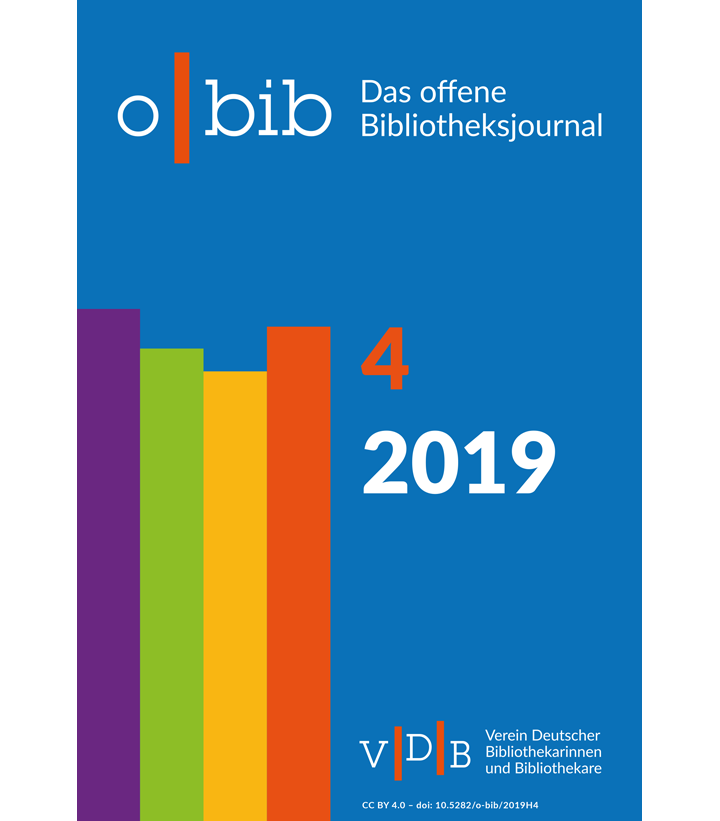No end in sight?!
Requirements, challenges and opportunities in the search of Nazi-looted property in acquisitions after 1945
DOI:
https://doi.org/10.5282/o-bib/2019H4S120-135Keywords:
provenance research, Nazi lootAbstract
At the end of the Second World War German libraries had suffered large losses of stock. The stock gaps were, among other things, filled with books regarded as „ownerless“, which were stored in collection points distributed throughout all Allied occupation zones. Thus, a large number of problematic collections came to libraries after 1945. Research has introduced the term „secondary Nazi-looted property“ for these cases, meaning objects which did not come directly from the victims of National Socialism, but were redistributed through complex paths and various institutions.
Since the summer of 2017, the Saxon State Library - State and University Library Dresden (SLUB) has been carrying out a project to review such acquisitions, funded by the German Lost Art Foundation. Initial results confirm that an investigation of these acquisitions is absolutely necessary because the number of books identified as Nazi loot is very high.
The examination of library holdings in view of secondary Nazi-looted property is linked to specific requirements and presents challenges, but also offers opportunities which are explained using the example of this project: What preparatory work must be done? How can research outcomes, inventory reviews and provenances be sustainably documented? How do investigations change, if not only the fates of the persecuted, but also the differentiated distribution channels in East and West Germany have to be reconstructed? Which sources (hitherto neglected by Nazi loot research) are available? What insights can be gained beyond the mere identification of provenances and Nazi loot? What needs to be taken into account with regard of the drafting of applications for third-party funding?
Downloads
Published
Issue
Section
License
Copyright (c) 2019 Elisabeth Geldmacher, Nadine Kulbe

This work is licensed under a Creative Commons Attribution 4.0 International License.





